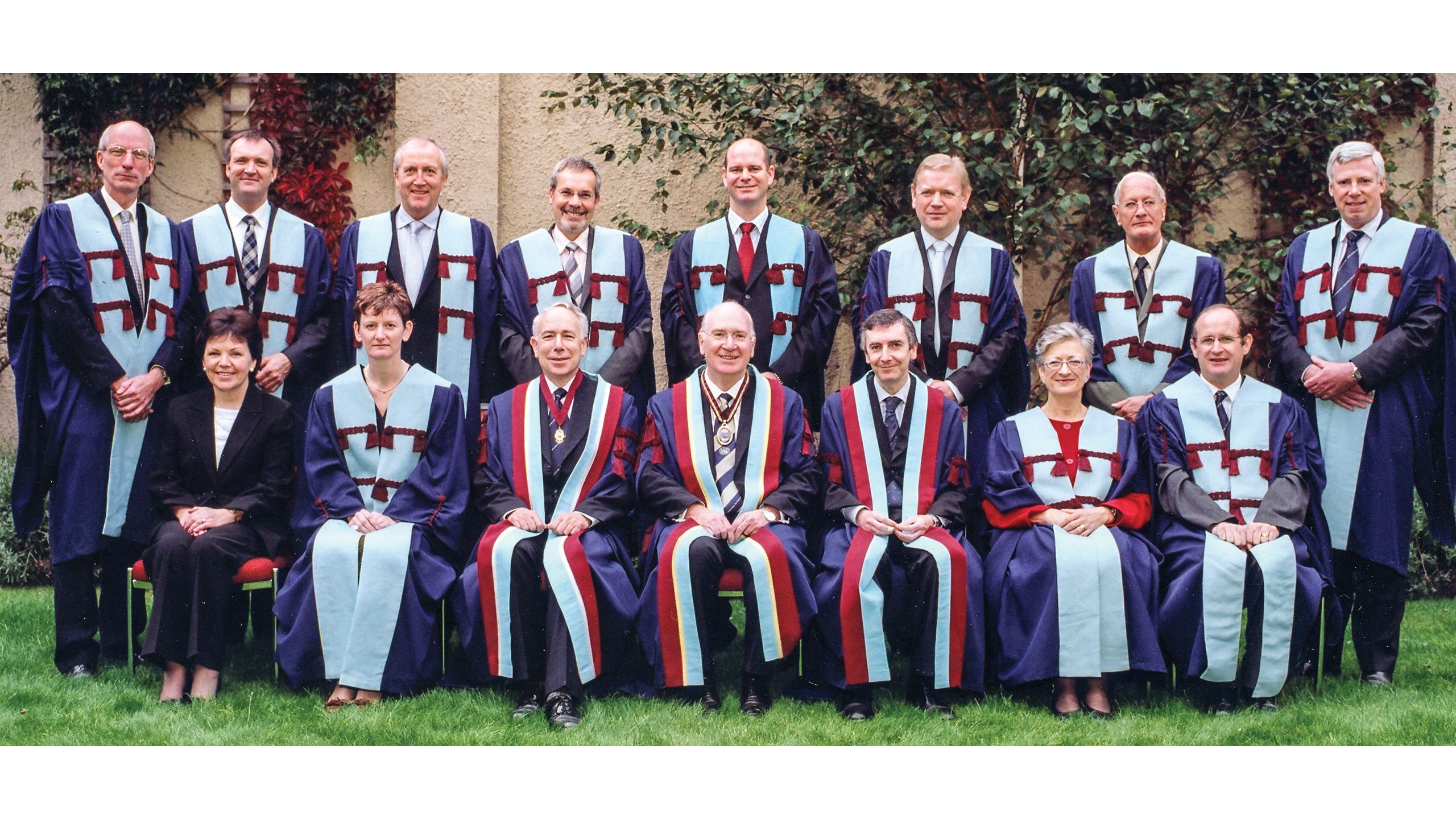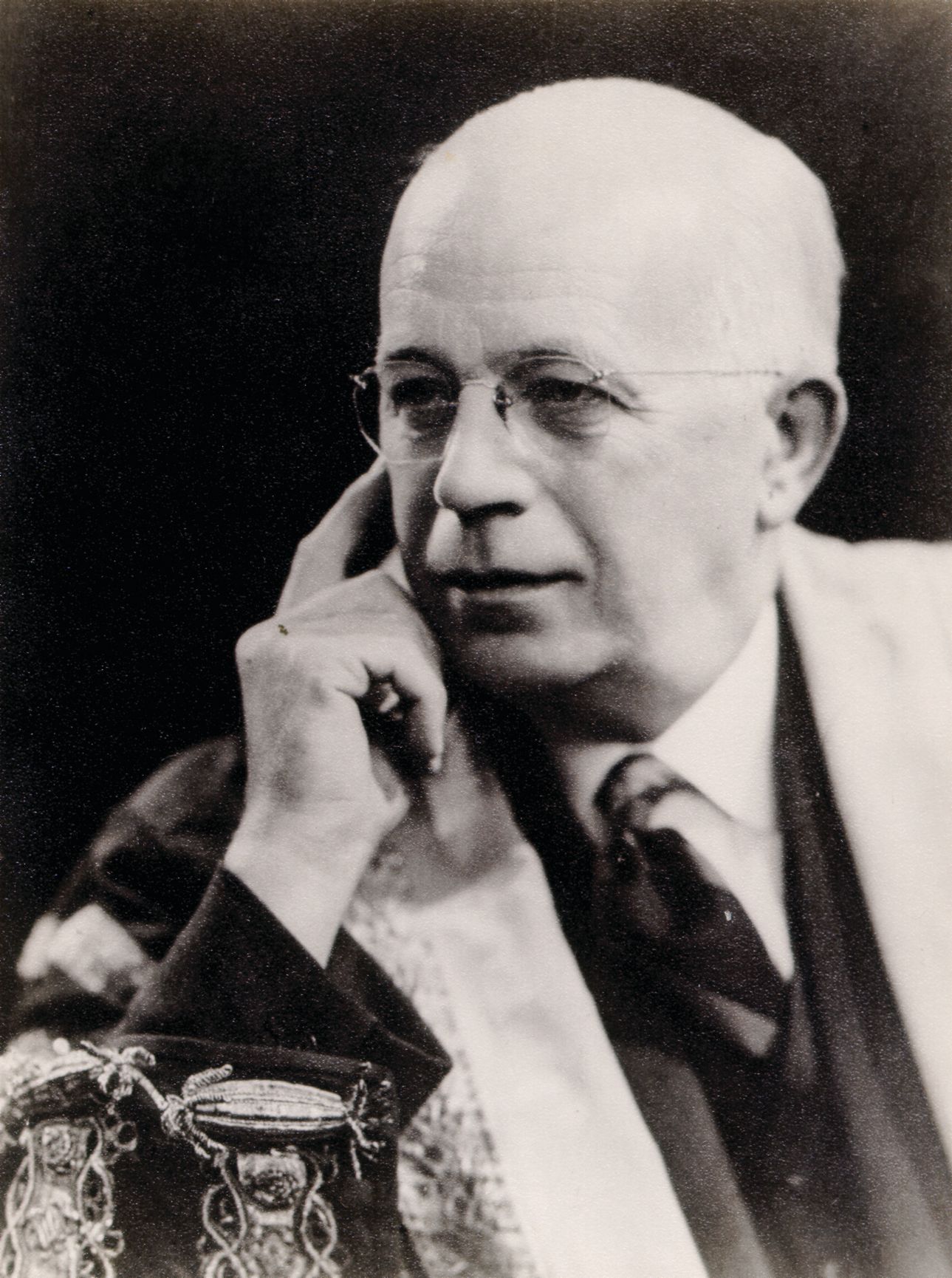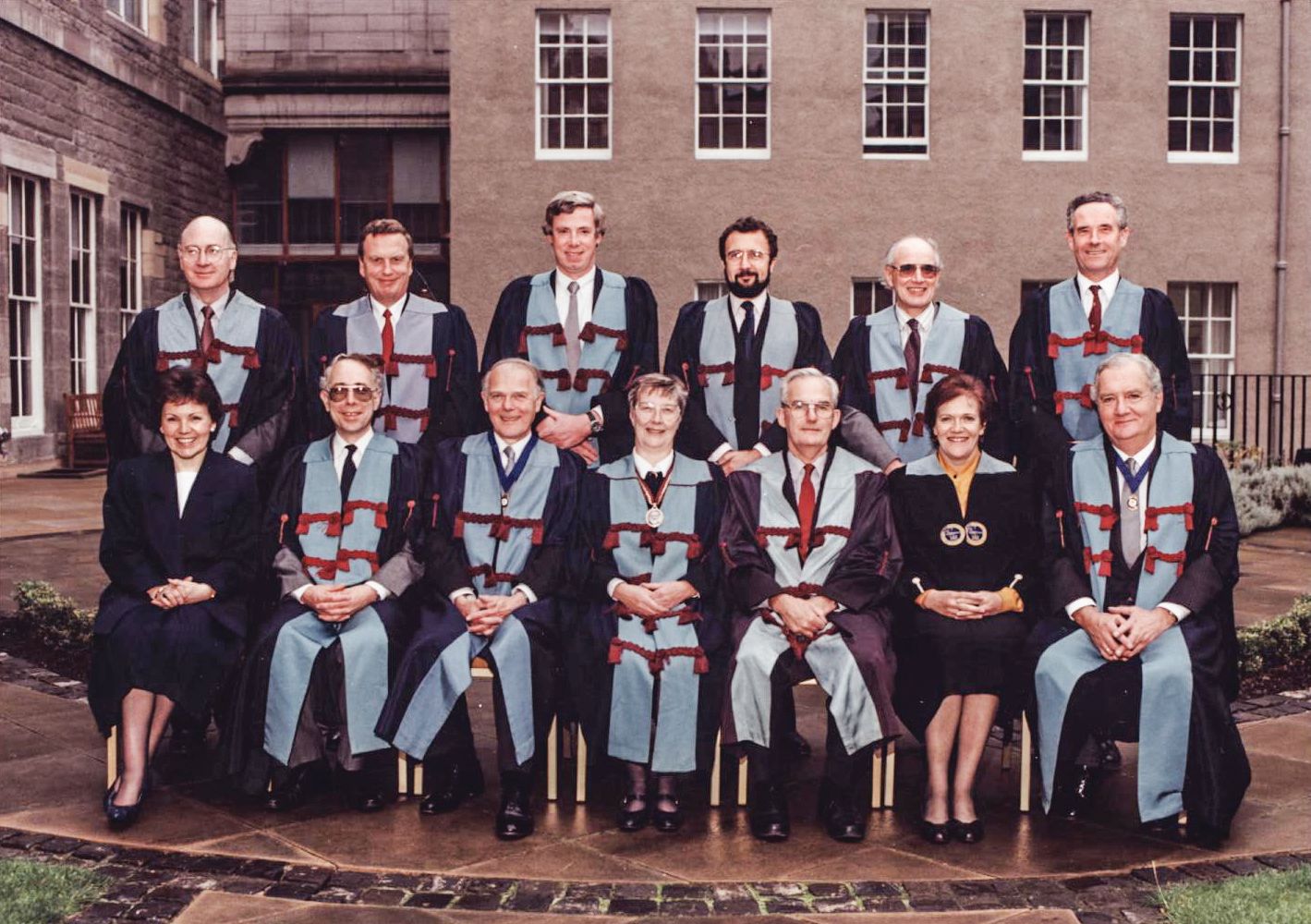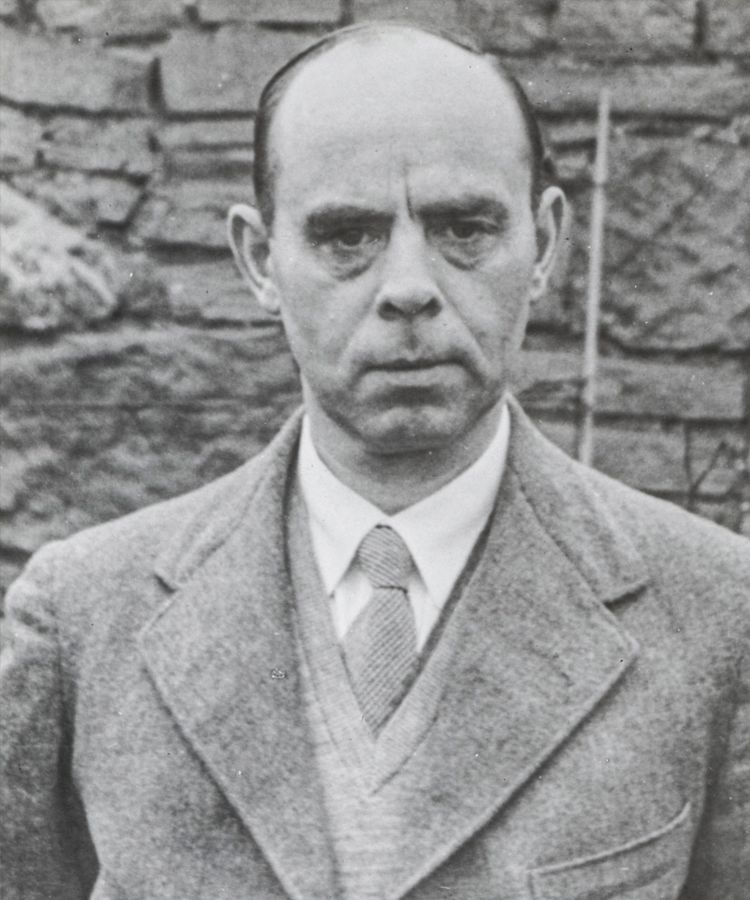Aiming high
is key (COPY) (COPY)
Grant McIntyre explores the new vision for dental specialty exams

Three cheers for 70 years
The RCSEd’s Dental Council celebrates its platinum anniversary this year
Three cheers for 70 years
The RCSEd’s Dental Council celebrates its platinum anniversary this year
Sir Walter Mercer, RCSEd President, 1951-56
Sir Walter Mercer, RCSEd President, 1951-56
The Dental Council in the 1990s
The Dental Council in the 1990s
Frederick George Gibbs, Dental Convenor, 1954-59
Frederick George Gibbs, Dental Convenor, 1954-59
This year marks the platinum jubilee of the Dental Council at the Royal College of Surgeons of Edinburgh. Over these 70 years, the Dental Council has been at the forefront of dental education, training and standards. Oversight of dental surgery within the College remained the responsibility of College Council until 1952, when discussions were opened within Council as to whether there should be a Dental Council or a Dental Faculty. The legal opinion of the time was that a new faculty could not be set up without an alteration to the College Laws, and thus the Dental Council was born in 1954.
The first meeting of the Dental Council took place on 26 February 1954, chaired by then President Sir Walter Mercer. He noted that the “way had been long and arduous but it gave the Royal College great satisfaction to see at last the Dental Council in being”. He hoped that in time it might be possible to go further and to contemplate the formation of a Dental Faculty. This was achieved in 1982.
A SUSTAINED IMPACT
The Dental Council has had a significant impact on the world of dentistry both in the UK and globally. Education is at the heart of all our activities and the constituent Advisory Boards and Specialty Advisory Boards. From the beginning, the First Meeting of the Fellows in Dental Surgery (28 April 1954) included talks on fibrous dystrophy of the jaws and ‘cases of interest’. Through the delivery of education within the Faculty, contribution to education across the wider College and assessment of standards of education, the Dental Council has had a sustained and substantial impact on dental education across the globe.
In recent years, a Convener of Dental Education has been a core member of the Dental Executive team, with the education strategy being one of the key drivers of Faculty activity. Accreditation of education has been a continuing process over recent decades, with accreditation of training placements giving way to accreditation of individual educational programmes in relation to general CPD activity and, more importantly, specialty exams. The standards leading to RCSEd educational accreditation are not to be underestimated and the work of many people over the years in this field is recognised. Moreover, the Dental Council has also made a significant impact on the evolution of the dental specialty curricula since these were formalised and, with each iteration, the input of Faculty members increases.
The Dental Council has had an enormous impact on postgraduate dental examinations over the last 70 years. The Higher Dental Diploma, which was introduced in 1919, became the FDS in 1949 and was an initial preoccupation for the Dental Council, with considerable time being spent on exam format, question development and selection of examiners over many years. The minutes from 1960 show that the pass rate for the Part I FDS was 29% and for Part II it was 48%. Interestingly, in the same year, the regulations for LDS were changed to reflect that 2,000 hours of instruction in dental mechanics was reduced to 800 to meet the recommendation of the GDC.
Examinations have changed substantially since then, with the FDS becoming MFDS in 1998, the introduction of the intercollegiate specialty Fellowship examinations in 1999 and FDS by assessment in 2000. Various changes have taken place since then, with our specialty exams being prestigious in the UK and internationally. In recent times, the RCSEd is the only College satisfying all eight General Dental Council standards for specialty education. ‘Times they are a-changin’’ said Bob Dylan, and the next iteration of MFDS and specialty exams is now underway. We are rightfully proud of our other notable exams, including the Membership in Oral and Maxillofacial Surgery (MOMS), the Membership in Advanced General Dental Surgery (MAGDS) and Membership in Implant Dentistry (MImpDent). We now examine more than 2,000 candidates a year and thankfully the imponderably low pass rate from 1960 has been condemned to history!
WIDER INFLUENCE
Upholding standards does not only apply to education and examination. The Dental Council makes a contribution to the wider College work on professional standards and ethics. The Council has contributed to a wide range of work over the years relating to professional guidelines involving all clinical disciplines, with the Deans in the early years also being automatically called to serve on the General Dental Council. While the morphing of the role and structure of the General Dental Council means the Dean is no longer called to serve, the Faculty continues to exert significant influence on the regulator and through various other routes to ensure ethical standards and high levels of professional conduct are a given across dentistry.
The Dental Council is not static – through continued innovation and adoption of educational and examination best practice, the Faculty continues to ensure that all of our activities remain at the forefront. Examinations have changed considerably over the last 70 years, from traditional written essay-type tests to the assessments we know today. Each generation mourns the loss of hard-fought and won aspects of assessment methodology, which the next generation perceives as mythology. Dental Council debates about removing submitted case material for examinations have been extensive and impassioned, while question-setting, curriculum-mapping, blueprinting and psychometrics have become standard parts of the educationally sound summative assessment process these days.
International activity has been part of Dental Council work from the near beginning of our fledgling faculty. The RCSEd, with our sister Colleges, was asked in 1957 to hold examinations for “foreign dentists seeking admission to the Dentists Register”. Reciprocity of examinations and professional standing give way to the delivery of examinations in specific international centres. Locations such as Ajman, Amsterdam, Australia, Bahrain, Brunei, Cairo, Dubai, Gothenburg, India, Latvia, Malaysia, New Zealand, Oman, Singapore, Sri Lanka, Trinidad and the US, among others, have been part of the mix over the last 70 years. Enduring professional and personal friendships have emanated from these contacts, with each Dean and Council being reminded that seemingly pastures new may in fact be old stomping grounds. The Dental Council has been successful at internationalising the Faculty, with 50% of Members and Fellows now beyond UK borders and increasing interest in joining the Dental Council from other countries.
MYTH BUSTING
Policy and advocacy work is nothing new either. These have been a key aspect of the Dental Council’s agenda over the decades, involving education for the public about oral health and disease prevention, along with dispelling the myths and misconceptions about dentistry. More importantly, this aspect of the fabric of Dental Council work is designed to educate the public and politicians about what is right in dentistry through the manifestos for each Westminster election, press releases and public comment.
Members and Fellows are assured that Dental Council advocates on behalf of individuals as well, particularly when an unwanted injustice impacts on a career. Influencing is nothing new – it is what the Dental Council has done successfully for seven decades.
TO THE FUTURE
An article of this size can never fully recognise the time, talents, enthusiasm and, at times, humour within the Dental Council over the last 70 years, with the Faculty of Dental Surgery having grown to become an outstanding assessor and guardian of dentistry in all its guises.
The Dental Council has changed considerably over that time, with 24 Conveners and Deans presiding over a wonderfully collegiate and, more importantly, steadfast profession at the heart of our College. The College encourages everyone regardless of background to stand for the Dental Council and, while the Council is progressive and has come a long way from an all-male group in 1954, there is scope for people of all genders and ethnicities who can bring different lived experiences and represent the diversity within the dental community.
Cheers to the next 70 years!





